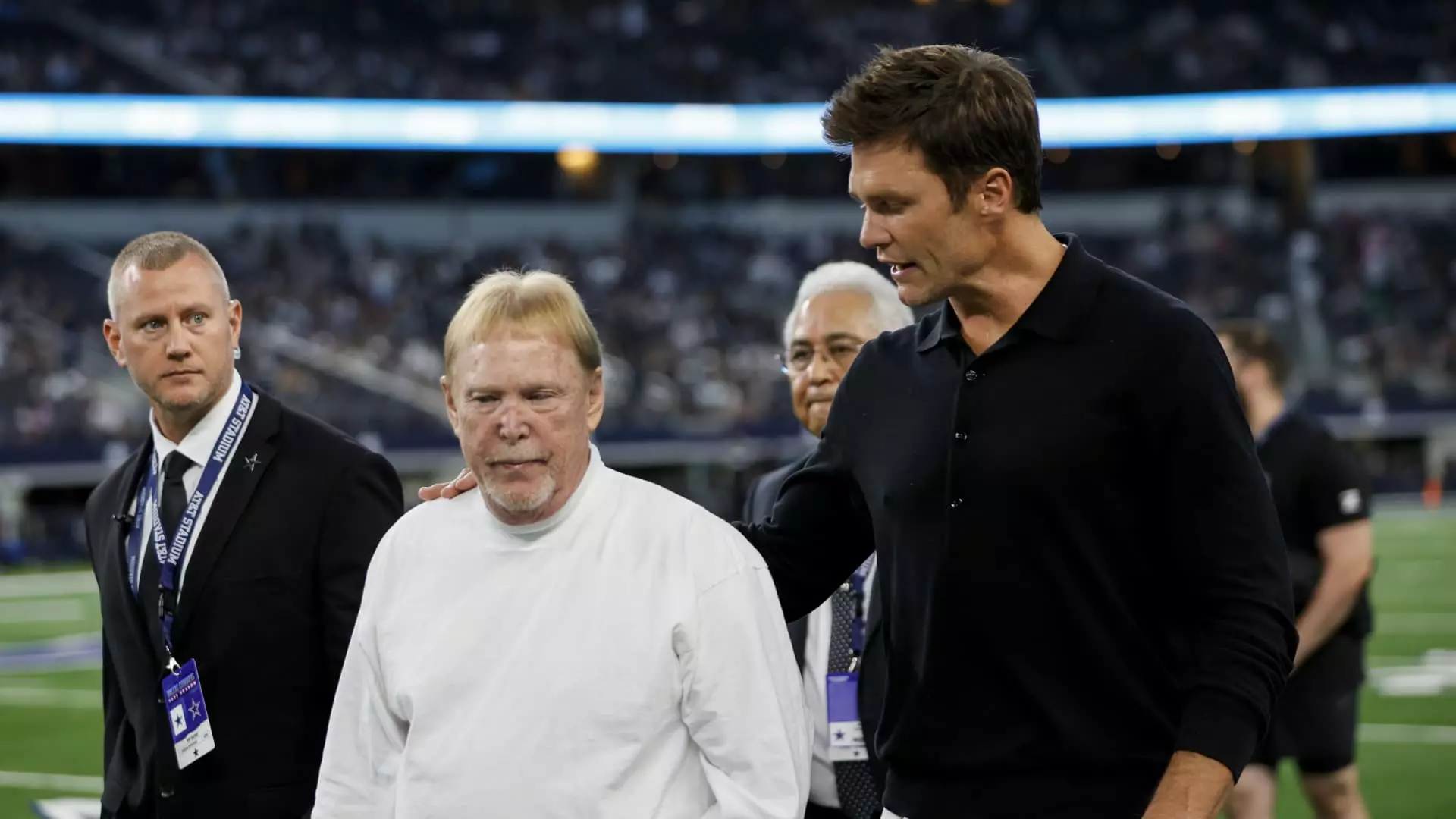In a landmark decision that signals a change in the landscape of sports ownership, Tom Brady, the famed seven-time Super Bowl champion, has secured a minority ownership stake in the Las Vegas Raiders. This accomplishment not only marks a new chapter in Brady’s post-playing career but also reflects the evolving nature of sports franchises. Brady’s investment, made in partnership with Tom Wagner of Knighthead Capital, grants him approximately 10% ownership in one of the NFL’s most valuable franchises, which is currently valued at around $7.8 billion, making it the fifth most valuable team in the league.
The unanimous approval from NFL team owners at a recent league meeting highlights the respect Brady commands in the sports world. While Brady and Wagner were not present during this pivotal moment, their move has stirred conversations about athlete involvement beyond the playing field. The Raiders, despite their relatively young history in Las Vegas following their relocation from Oakland, have shown remarkable financial growth, thanks in part to the new stadium and strategic management. The business model appears robust, as evidenced by the franchise’s impressive revenue generation of $780 million in 2023, putting them firmly among the league’s top earners.
The Raiders’ $7.8 billion valuation represents a significant turn of fortunes from the team’s previous standing in a lower tier of franchise values. Upon their relocation to Las Vegas in 2020, the franchise not only gained a new identity but also reaped the financial benefits associated with their new venue, Allegiant Stadium. Despite being one of the NFL’s more intimate stadiums, with a capacity of 65,000, the Raiders have successfully positioned themselves as a premium entertainment option in a city known for high-stakes experiences.
With ticket prices averaging $169, the organization has managed to extract remarkable revenue from a smaller venue by leveraging the allure of Las Vegas as a tourist destination. Additionally, Allegiant Stadium serves as a versatile venue, hosting a variety of non-football events, which further enhances its revenue streams. In 2023 alone, the franchise reportedly earned over $50 million from hosting concerts and other events, demonstrating that their financial strategy extends well beyond traditional NFL income.
However, Brady’s move into ownership does not come without its complications. Despite being a legend on the field, his new role comes with specific restrictions. He will not have access to team facilities or the ability to attend production meetings, nor will he be allowed to broadcast games involving the Raiders in real-time. These limitations are aimed at maintaining a level of separation between his dual roles as a player-turned-broadcaster and an owner, reflecting the NFL’s stringent policies on conflicts of interest.
This duality could present Brady with unique challenges. As he steps into this new arena, navigating the intricate web of league rules while simultaneously embracing his broadcasting commitments will require a careful balancing act. Moreover, the restrictions placed on him underscore the league’s efforts to protect the integrity of team ownership from undue media influence.
Brady’s journey to ownership illustrates a growing trend where former athletes leverage their fame and financial success to engage in team ownership, reshaping the dynamics of traditional sports management. He joins the ranks of only a few former players who have transitioned into ownership roles, demonstrating a commitment to fostering the next generation of athletes from a different perspective. Additionally, his existing minority ownership in the WNBA’s Las Vegas Aces indicates a wider ambition to contribute to the sports landscape in the vibrant city of Las Vegas.
As the landscape of sports ownership continues to evolve, Tom Brady stands at the forefront of this transformation. His investment not only marks a new beginning in his post-NFL career but also opens up the conversation regarding the future of athlete involvement in franchise operations. The combination of his unparalleled experience, influence, and newly obtained stakes will likely echo through the league and beyond, establishing a legacy that could shape the future of sports ownership dynamics for years to come.


Leave a Reply